Remember! Before starting preparation for the interview, you should cut down the process into simpler processes. So in this blog, we will focus on C# Interview questions and answers, but we will divide the whole preparation into simpler parts.
- Basics of C#
- Object Oriented Programming (OOP)
- Technical Questions
Basics of C#
1: What are the key features of C#?
C# is the powerful language used by many of the big tech companies. It has many key features that make C sharp one of the most popular language.
Some of the main features are:
It is object-oriented, type-safe, modern language, component-oriented, and has a rich library for various functionalities.
Some additional features are garbage collection, error handling, LINQ, and asynchronous programming.
2: What is the difference between a value type and a reference type?
Value Types
The variable holds the data itself. Its examples are int, double, bool, struct, and enum.
Reference Types
The variable holds a reference or we can say that it holds an address where data is stored. Its examples are string, class, array, and object.
3: What are the different types of collections available in C sharp?
Collection in C sharp can be classified into two main categories
- Generic Collections
- Non-Generic Collections
Examples of generic collections are List<T>, HashSet<T>, LinkedList<T>, etc.
Examples of non-generic collections are ArrayList, Hashtable, and SortedList.
4: How does C# handle exception handling? What are try, catch, and finally?
C sharp uses the proper way to handle exceptions using try, catch, and finally.
Try block is the block having code where exceptions might occur.
When an exception occurs in the try block then the catch block follows the try block and handles the specific type of exceptions.
“Finally” block can be used optionally in conjunction with try and catch
.
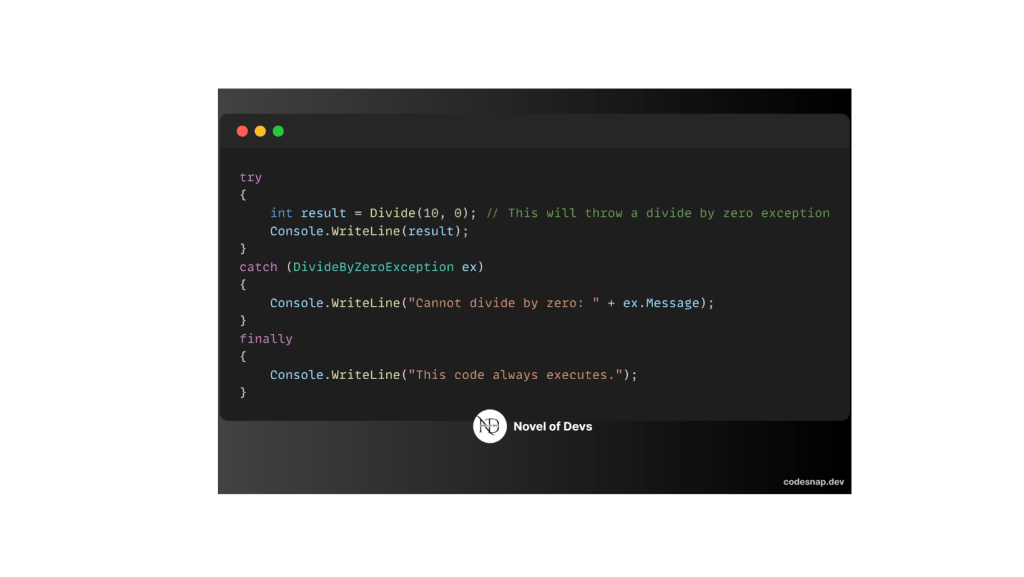
5: What is the difference between string and stringBuilder in C#?
“String” is immutable. Once a string object is created then its value cannot be changed. Any modification will create a new string object.
StringBuilder is mutable. Objects can be modified without creating new objects. It is optimized for building strings through concatenation, insertion, and deletion.
6: What are lambda expressions in C#?
These are concise anonymous functions which are to represent statements and expressions. They are used because they provide more cleaner syntax.
(int x) => x * 2; // Expression lambda
(int x) => { return x * 2; }; // Statement lambda
Object Oriented Programming (OOP)
Now let’s explore some frequently asked questions regarding object-oriented programming in c sharp. Object-oriented programming is the most important phase during an interview of C#.
Make sure to have a strong understanding of C# oop concepts.
1: What are the four fundamental principles of object-oriented programming?
The four pillars of object-oriented programming are:
- Inheritance
- Polymorphism
- Encapsulation
- Abstraction
2: What is inheritance and what are its types?
When one class uses the variables and functions of other classes it means it inherits the properties from that class. So in inheritance one is parent class and the other is child class.
Types of inheritance are:
- Single inheritance
- Multi-level inheritance
- Multiple inheritance
- Hierarchical Inheritance
3: Is multiple inheritance possible in C#? If possible then how?
You cannot do multiple inheritance using classes in c sharp. It can lead to a diamond problem.
You can use the alternative and can use interfaces for multiple inheritance.
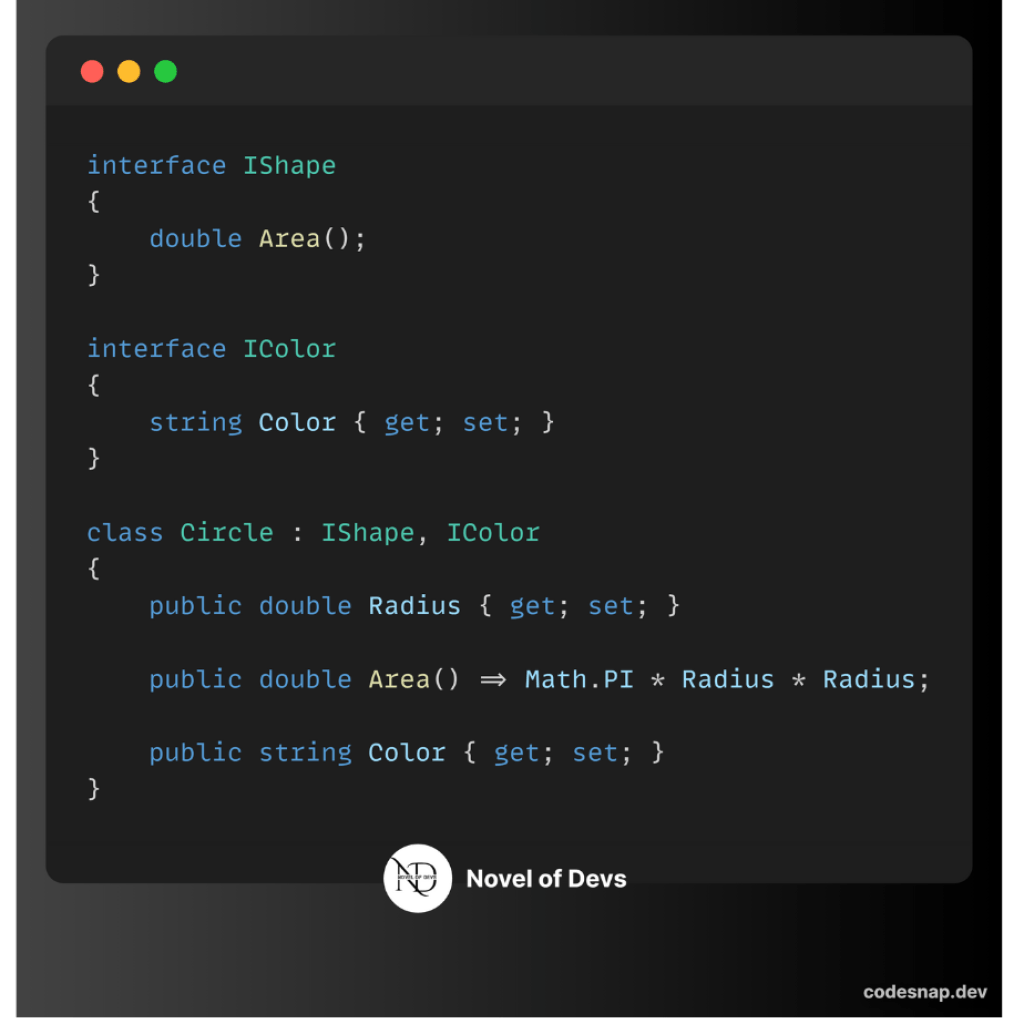
4: What is polymorphism?
Poly means many so anything that can be used in many forms is called polymorphism.
There are two types of polymorphism that are Compile-time polymorphism and Run-time polymorphism.
Compile-time polymorphism contains function overloading and operator overloading
Run-time polymorphism contains function overriding.
5: What is encapsulation
Encapsulation is a very important concept in object-oriented programming. It plays a crucial role in big tech having bigger products. Encapsulation is used to bundle the code in a single unit so that it cannot be changed by any other developer, or you can say that you hide the implementation through encapsulation.
Encapsulation enhances modularity and focuses on the single responsibility principle.
6: What is the “virtual” keyword?
A virtual keyword is used to declare the method or property open for modification in child classes. When we declare with the virtual keyword in the base class then the derive class can use it and modify it according to its use.
7: What are sealed classes in C#?
When you declare a class as a sealed class then it is not open for inheritance. No other class can inherit the sealed class. To declare the class as sealed you have to write a sealed keyword with the class.
sealed class myClass{}
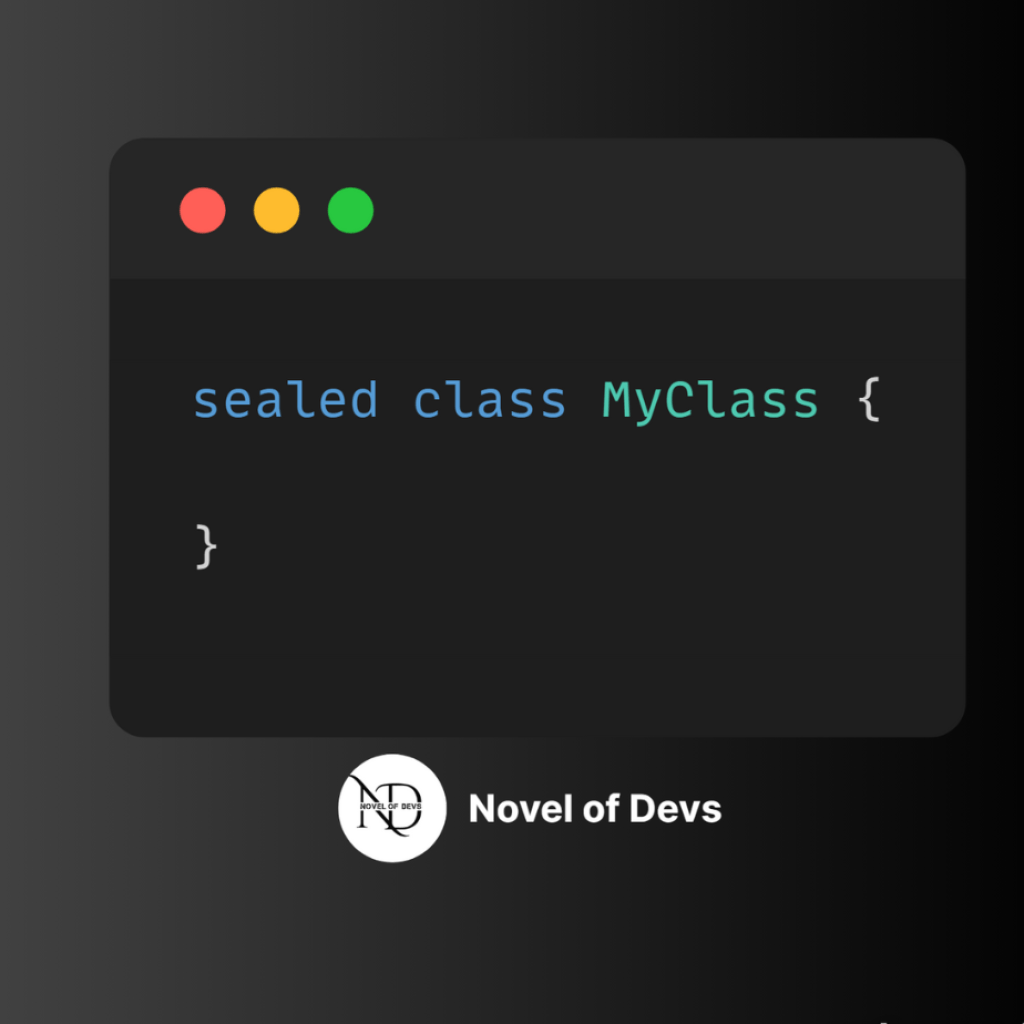
8: What are extension methods?
The extension method allows you to “add” methods to existing types without modifying the original.
9: What are constructor and destructor in C#?
A constructor object is a method that is automatically called when an object of a class Is created.
10: What is the difference between method overloading and method overriding?
Overloading means methods having the same name with different parameters.
Overriding means methods having the same name, parameters, and data types.
Technical Questions
The interviewer may tell you to open Notepad and write a code.
Some important technical questions are around data structures and problem-solving.
Some of the main questions are:
1: You can be given an array and the interviewer will ask that reverse this array.
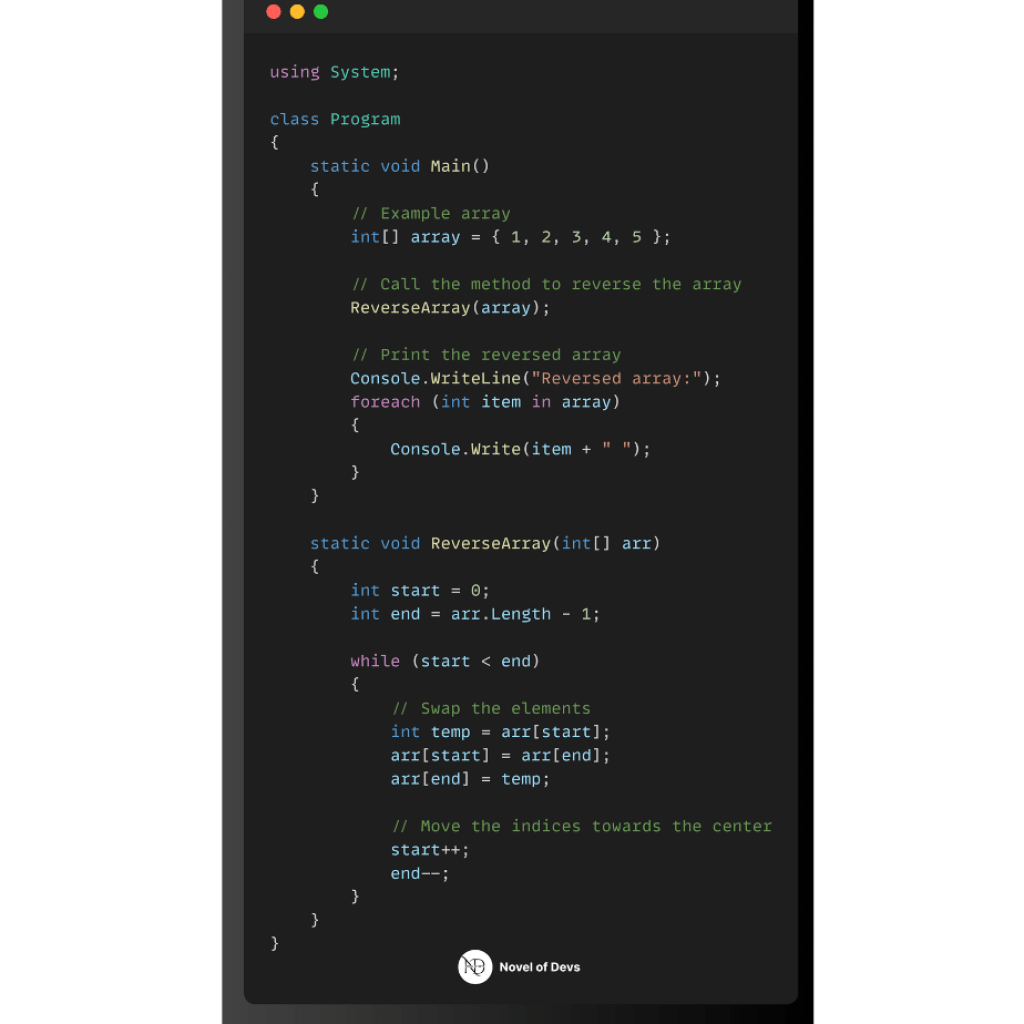
2: Sorting of array
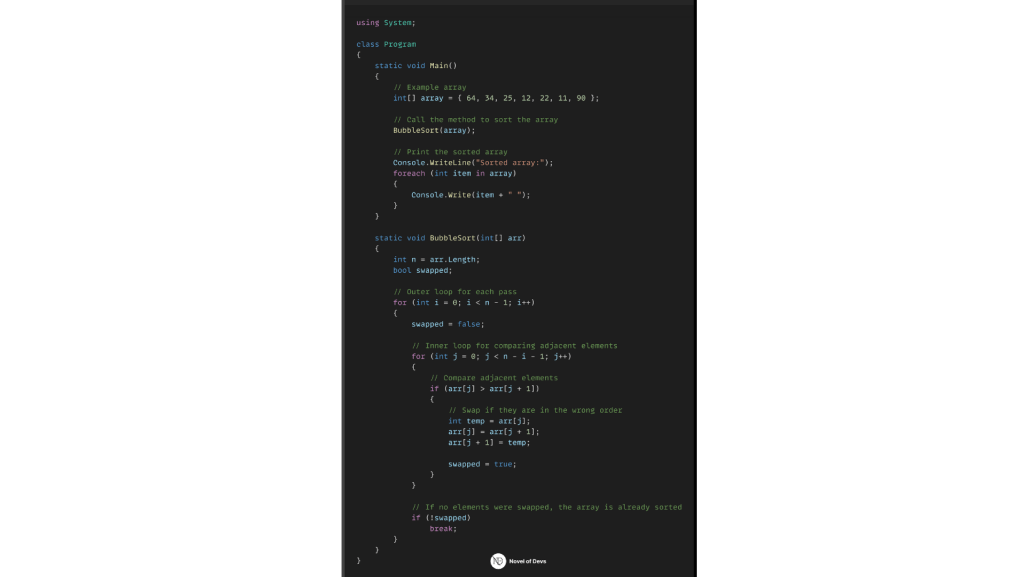
3: Finding Palindrome string
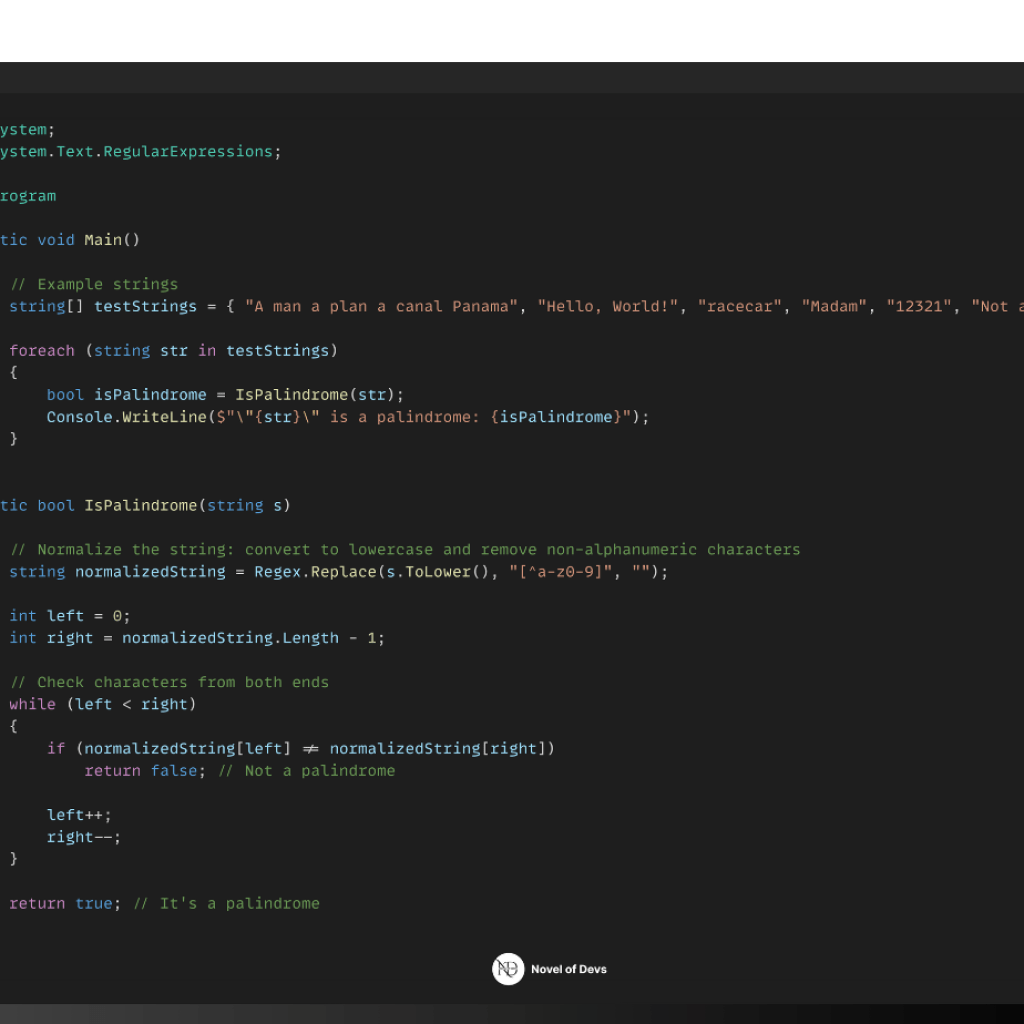
4: Questions may be subject to mathematics problem-solving.
Hopefully, this blog has given you the most frequently asked questions in interviews. Comment below about your views. Thanks!
For more content and blogs visit our site: http://www.novelofdevs.online